Dr. Ardy [Robert Black Fellow] is investigating the genetic determinants that govern the behavior of fibroblasts, a type of connective tissue cell that has been implicated in arthritis, heart disease, and cancer. Activated fibroblasts can exacerbate disease through various mechanisms, including remodeling tissue architecture and modulating the immune system. Dr. Ardy plans on using state-of-the-art genetic tools, including CRISPR inhibition and activation coupled with single-cell RNA sequencing technology, to uncover the proteins and pathways that regulate fibroblast behavior and thereby inform the development of new targeted cancer treatments. Dr. Ardy received his PhD from the Medical University of Vienna and his BS from the University of California, Los Angeles.
All Cancers
Current Projects
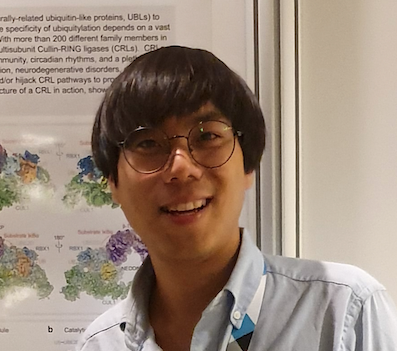
Attaching a small molecule known as ubiquitin to a protein, in a process called ubiquitylation, targets that protein for degradation. By utilizing the ubiquitylation machinery, scientists are now able to target cancer-causing proteins for degradation, a strategy that has proven effective with drugs such as Lenalidomide/Revlimid to treat multiple myeloma. One way to bring proteins in proximity to ubiquitin ligases (attachers) is with synthetic adhesion molecules, or “molecular glue.” This may provide a means of targeting proteins previously deemed undruggable, including those that lack a binding site for inhibitors. Dr. Baek [Meghan E. Raveis Fellow] aims to expand the degradable proteome by establishing a formula for the design of molecular glues to target cancer-causing proteins as a therapeutic modality. Dr. Baek received his PhD from Technical University of Munich and Max Planck Institute of Biochemistry, Munich, his MS from University of Tennessee Health Science Center, Memphis, and his BA from Rutgers University, New Brunswick.
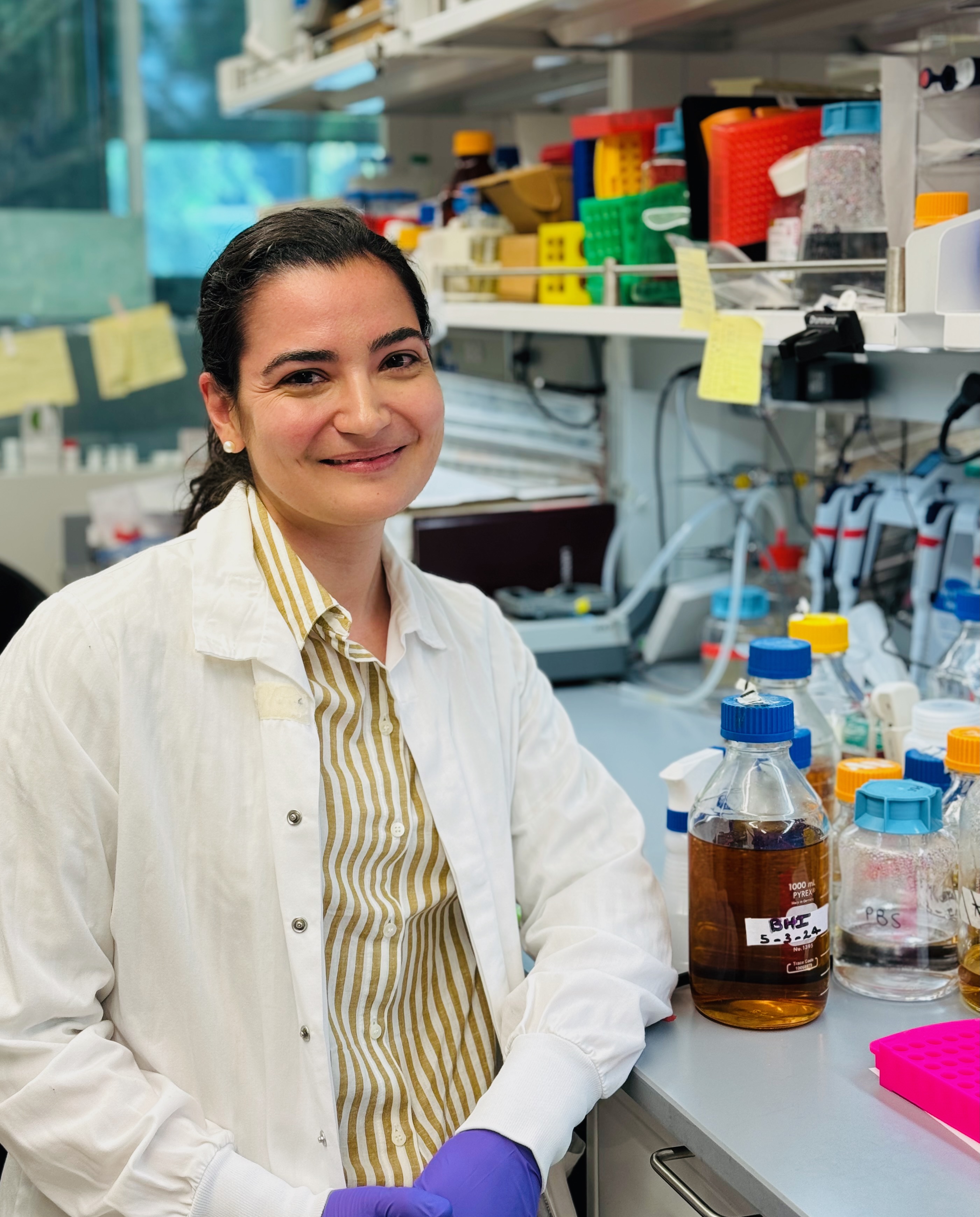
The bacterium Staphylococcus epidermidis (S. epi) is nearly universally present on human skin, and certain strains are capable of eliciting immune responses that can be redirected against tumor antigens. Dr. Barkal [National Mah Jongg League Fellow] is investigating how to harness the immunomodulatory properties of S. epi to develop a new class of T cell immunotherapy that is potent and tumor antigen-specific, avoiding the systemic side effects associated with current immunotherapies. Specifically, she is using a melanoma model to explore how to modulate T cell production with S. epi and how to use other skin bacteria for synergistic anti-tumor effects. This work will form the foundation for human trials of topical bacteria-based cancer immunotherapy. Dr. Barkal received her MD, PhD from University of Wisconsin-Madison, Madison and her BS from Massachusetts Institute of Technology, Cambridge.

Peptide drugs, which mimic the function of natural peptides such as hormones or growth factors, have emerged as a promising strategy for the treatment of cancer. Despite their potential, however, very few have reached the clinic in the past decade, primarily due to their off-target toxicity. The design of a suitable system to deliver peptides in a site-specific manner would address a major challenge in the development of anticancer peptide drugs. De novo protein design, or building proteins “from scratch,” has allowed for the engineering of functional proteins for a broad range of applications, from catalysis to pharmaceuticals. Dr. Bhattacharya [Connie and Bob Lurie Fellow] aims to design proteins from scratch that can “mask” a peptide of interest for systemic delivery to the desired location. This project will initially target pediatric sarcomas, but eventually extend to other cancers like glioblastoma and breast cancer. Dr. Bhattacharya received his PhD from Syracuse University, Syracuse and his MS and BS from University of Calcutta, Kolkata.
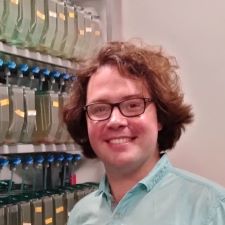
Evidence that aging is driven by defined, regulated processes (rather than simple “wear and tear”) has sparked hope that we might target these processes to fight age-related diseases. A particularly exciting example is the regulation of protein homeostasis, or the balance between protein synthesis, folding, and degradation. Protein homeostasis is deregulated in both cancer and normal aging, but the underlying mechanisms remain elusive. Dr. Boos will use the short-lived African turquoise killifish as a new model organism to study how different cells and tissues respond to protein misfolding, how they coordinate their responses, and how aging influences these pathways. This research will not only unravel fundamental mechanisms of aging, but also inform new strategies to fight multiple types of cancer. Dr. Boos received his PhD and his B.Ed. from the University of Kaiserslautern.
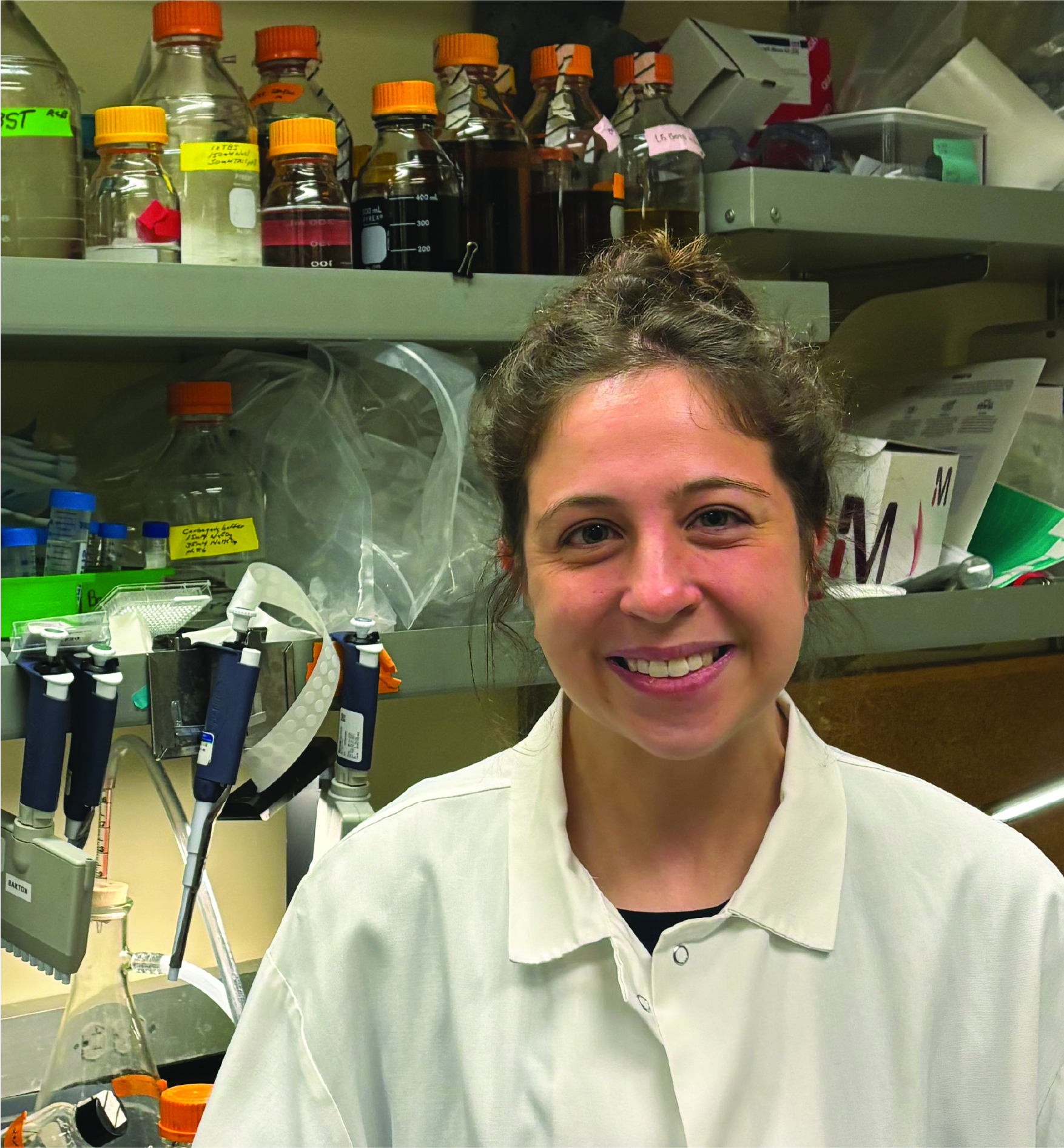
B cells, especially those that target cancer antigens, are crucial for fighting tumors; however, not everyone develops them. Our gut bacteria play a vital role in training B cells to recognize a wider range of threats. Dr. Brewer’s [HHMI Fellow] research explores how these gut bacteria influence the specificity of B cells, and thus our body’s ability to combat tumors. Dr. Brewer’s research aims to determine if the “training” of B cells by gut bacteria early in life influences their later responses to vaccines and cancer. This investigation may not only improve our understanding of how gut bacteria shape our immune system, but also pave the way for novel cancer treatments utilizing gut bacteria. Dr. Brewer received her PhD from Stanford University, Stanford and her BS from Massachusetts Institute of Technology, Cambridge.
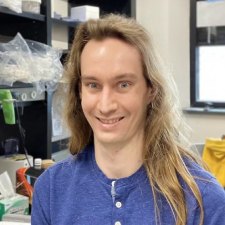
Dr. Catipovic focuses on the mechanisms governing the resolution of errors that arise during RNA translation in mammals. Ribosomes translating the same message can collide if they are damaged or encounter blockages much like cars involved in a traffic accident. While cells can tolerate small numbers of these incidents, pervasive collisions overwhelm the cell and force it to make crucial decisions regarding long-term viability. Dr. Catipovic investigates the biochemical mechanisms governing this determination. He uses reconstituted translation systems, consisting of purified translation factors in vitro, as a tool to study the signaling pathways initiated by ribosomal collisions that effect the life-death decisions of severely stressed cells. Perturbation of these pathways can cause premature cell death or unregulated cellular proliferation, which is found in almost all cancers.
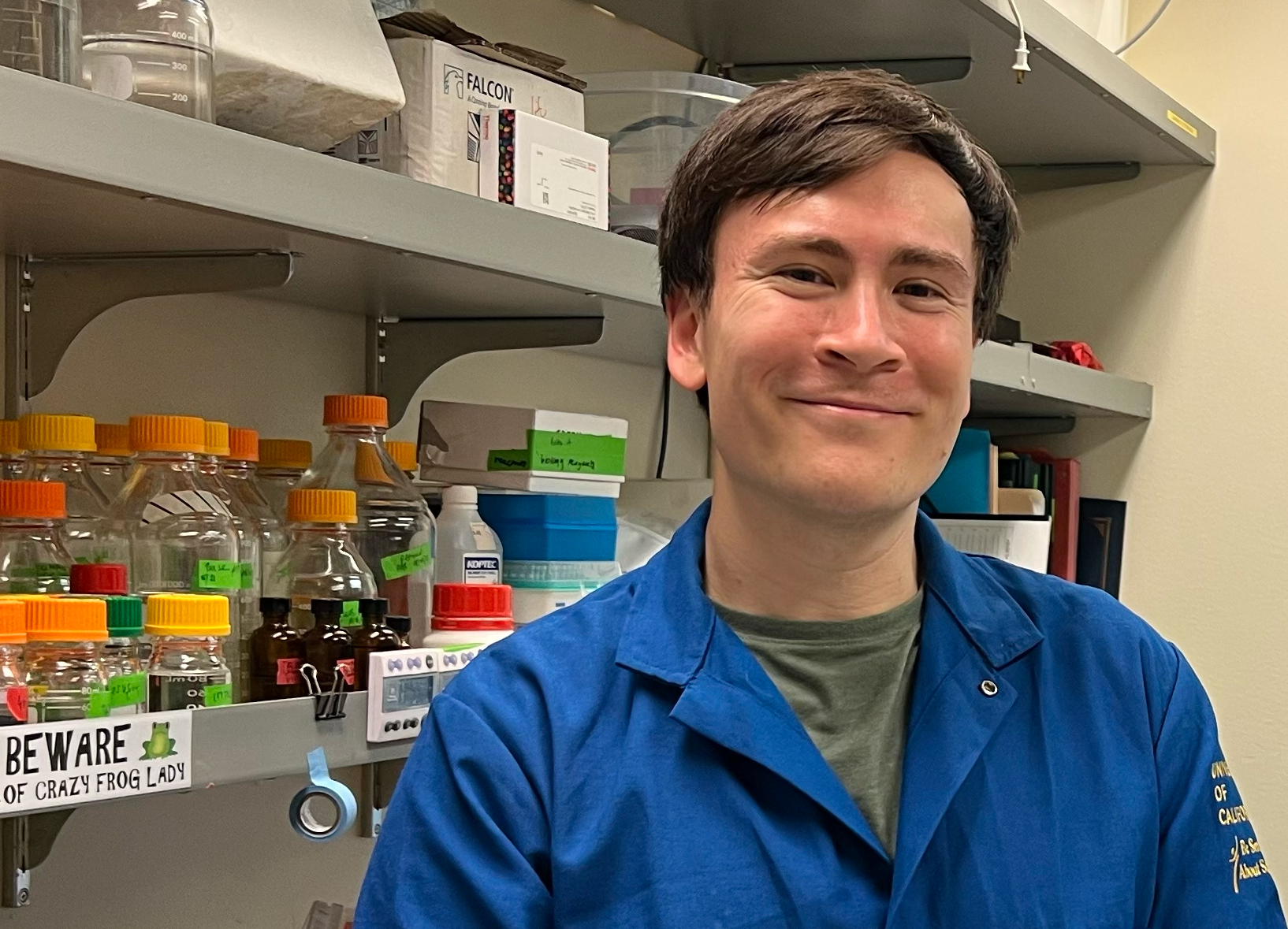
Proper cell division, including equal partitioning of DNA into two “daughter” cells, is critical for cell viability. However, many cancers continue to divide despite having atypical numbers of chromosomes and can even contain additional copies of the entire genome (polyploidy). Understanding how large increases in chromosome number affect cell division machinery has been limited by the methods used to generate polyploid cells. Serendipitously, stable polyploidy has arisen in multiple organisms, such as plants, fish, and amphibians. By utilizing the natural polyploidy found in Xenopus clawed frogs (ranging from two copies to twelve copies of the genome), Dr. Cavin-Meza [Merck Fellow] will explore the mechanisms that lead to increased but stable genome size. He will also analyze the proteome across Xenopus species to reveal how proteins have adapted to promote stable polyploidy over time, giving valuable insight into how stable polyploidy could arise in cancers. Dr. Cavin-Meza received his PhD from Northwestern University, Evanston and received his BS from the University of California, San Diego.
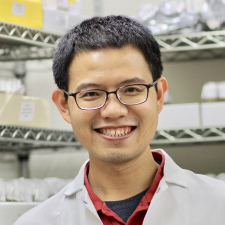
Dr. Chang is studying protamines—short, positively-charged proteins that condense DNA into chromatin and regulate gene expression in sperm nuclei. While eukaryotic cells use histones to package genomes in a way that allows access for transcription and replication, sperm cells must package their genomes more tightly. For this, many animals deploy protamines instead of histones. Despite sharing certain functions with highly conserved histones, protamines have independently arisen in evolution multiple times and are continuing to rapidly evolution. Using Drosophila fruit fly species as a model, Dr. Chang studies how sperm chromatin regulates gene expression and reproductive fitness. Additionally, although protamine expression is typically limited to testes, their misexpression has been observed in many cancers, indicating an opportunity for therapeutic intervention.
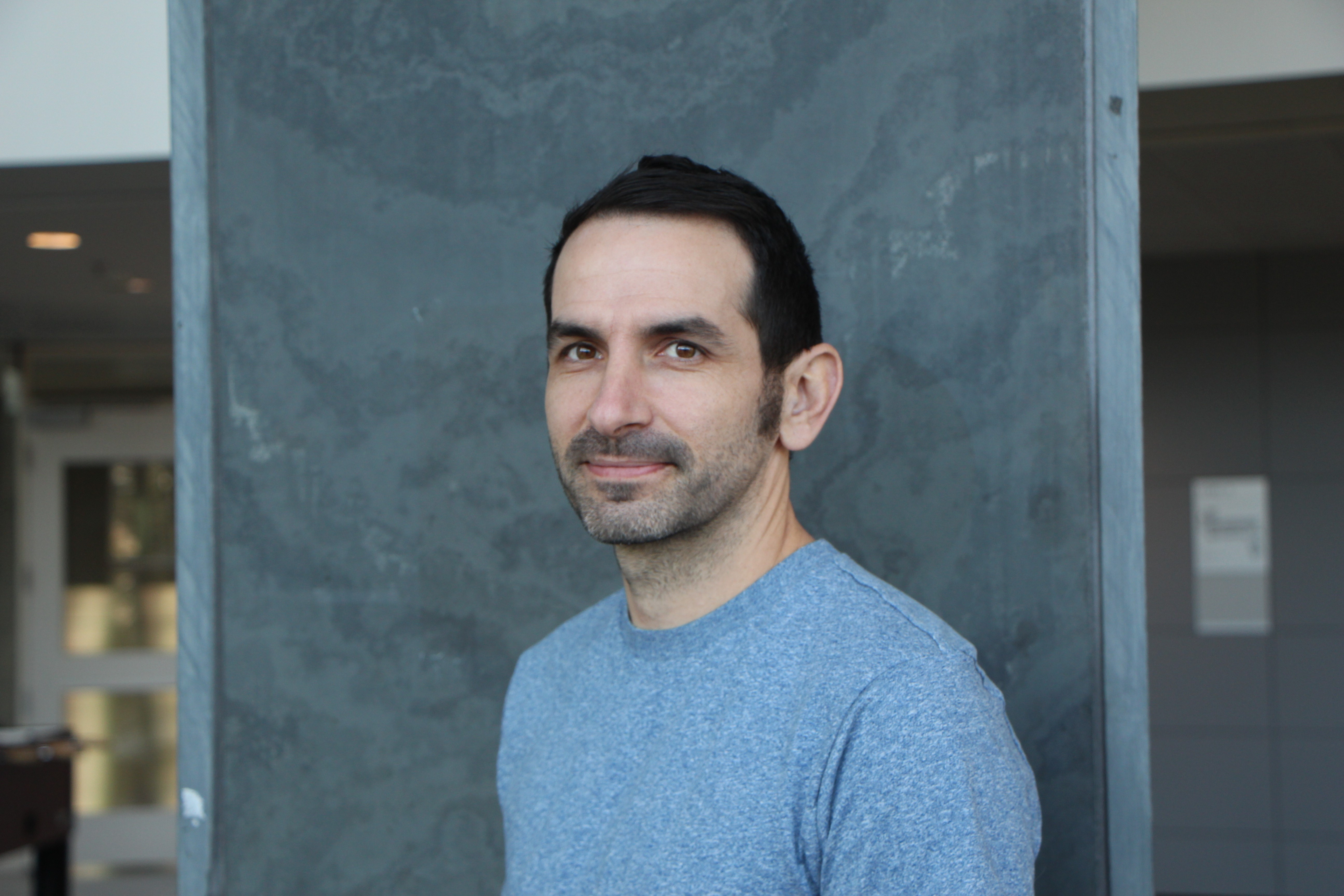
Dr. Chappleboim studies how cells communicate during a developmental process called somitogenesis, which drives the formation of repeated structures such as the spinal vertebrae. The signals that guide cell communication during this process can get misinterpreted by cancer cells, resulting in uncontrolled growth. These pathways are implicated in numerous cancer types but are notably associated with colorectal, ovarian, and breast cancer. Using cutting-edge techniques in human stem cells and 3D-models called organoids, along with the tools of computational biology, Dr. Chappleboim aims to deliberately perturb and examine these signaling pathways to gain a comprehensive understanding of how they function. Dr. Chappleboim received his PhD, MS, and BS from Hebrew University of Jerusalem, Jerusalem.







